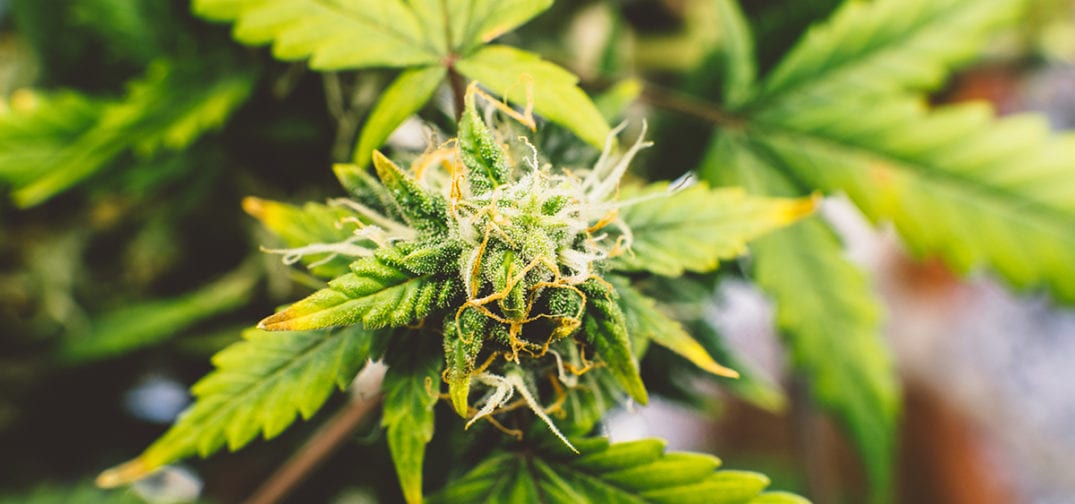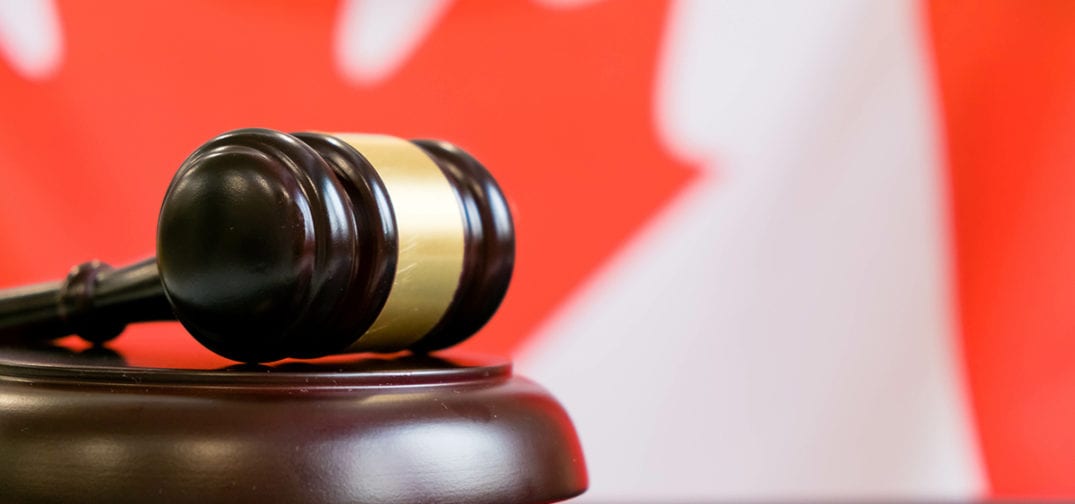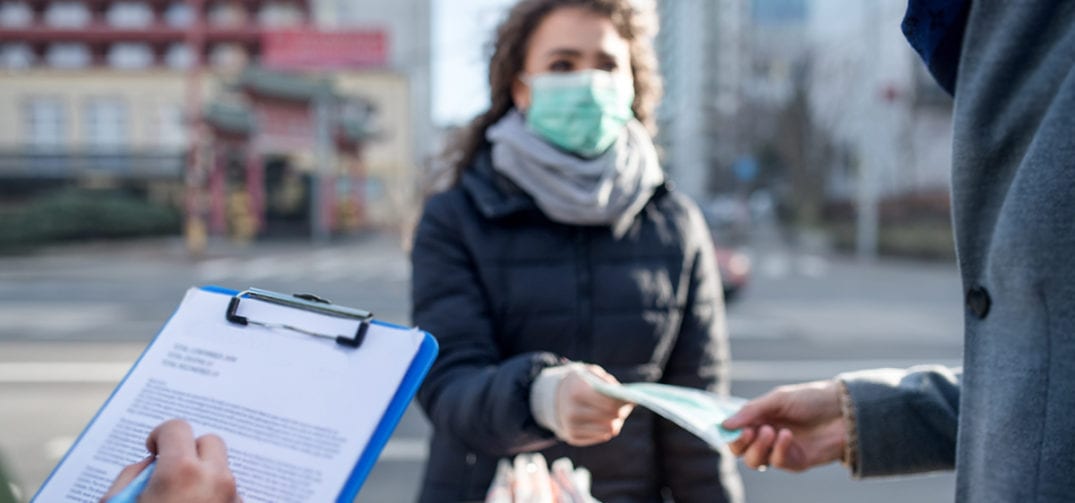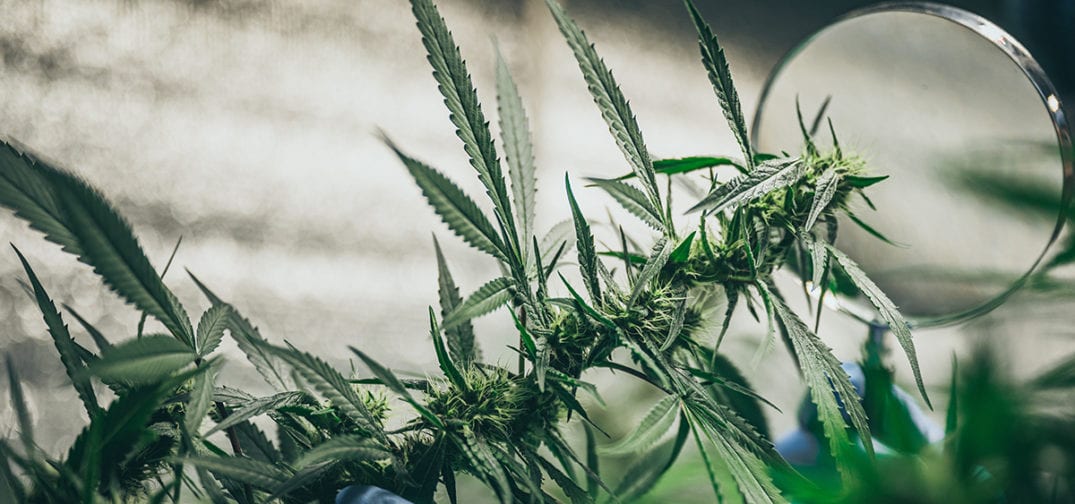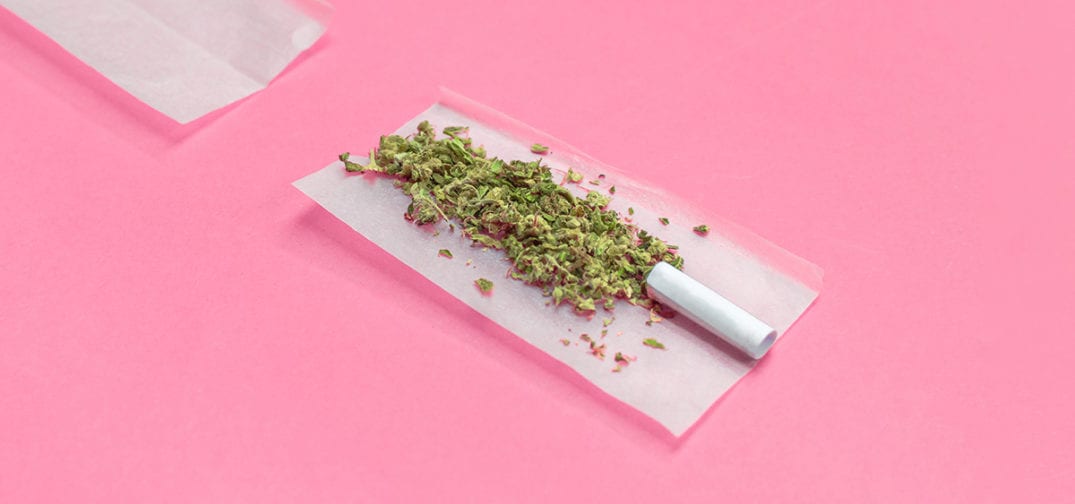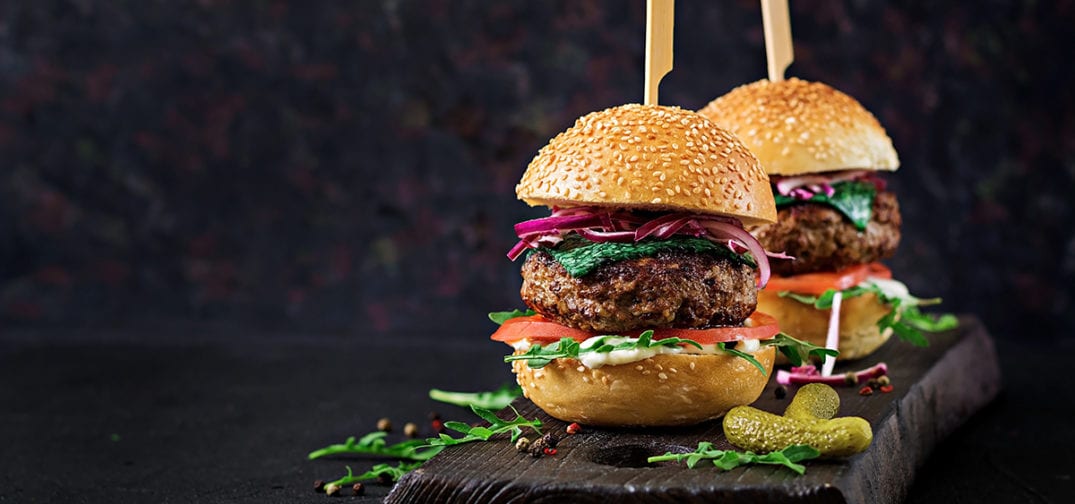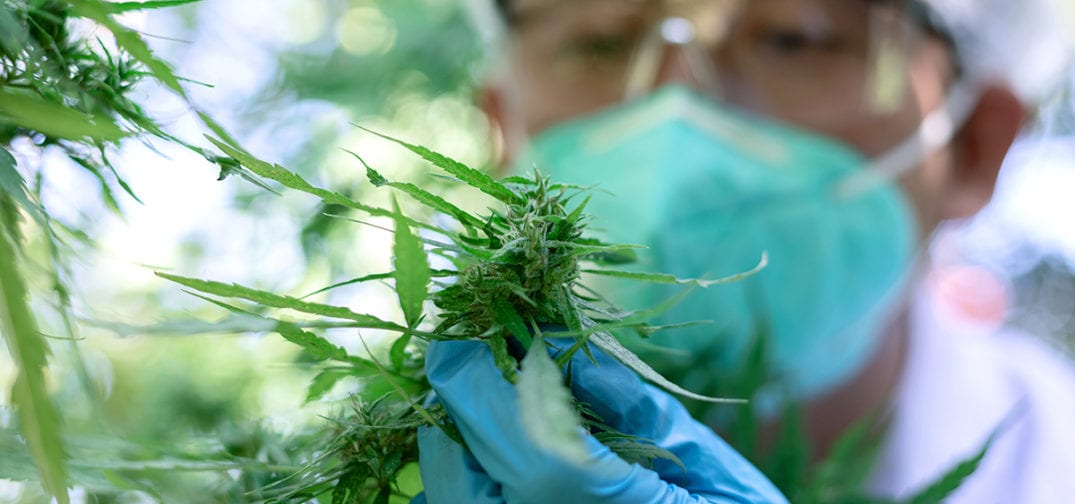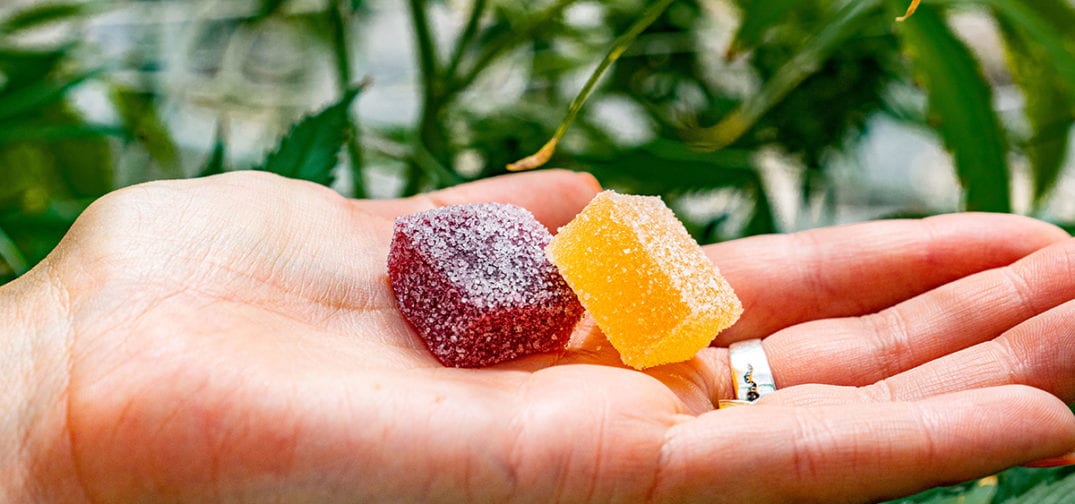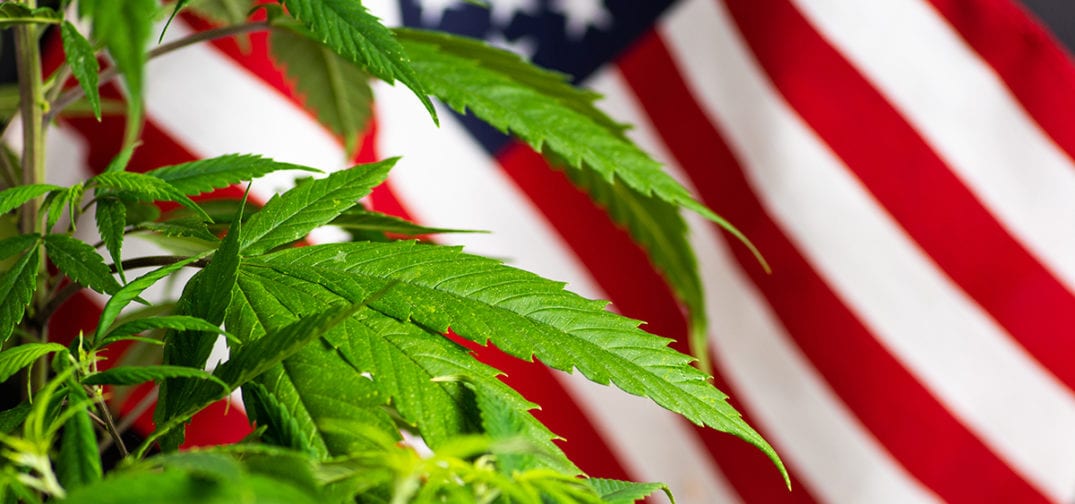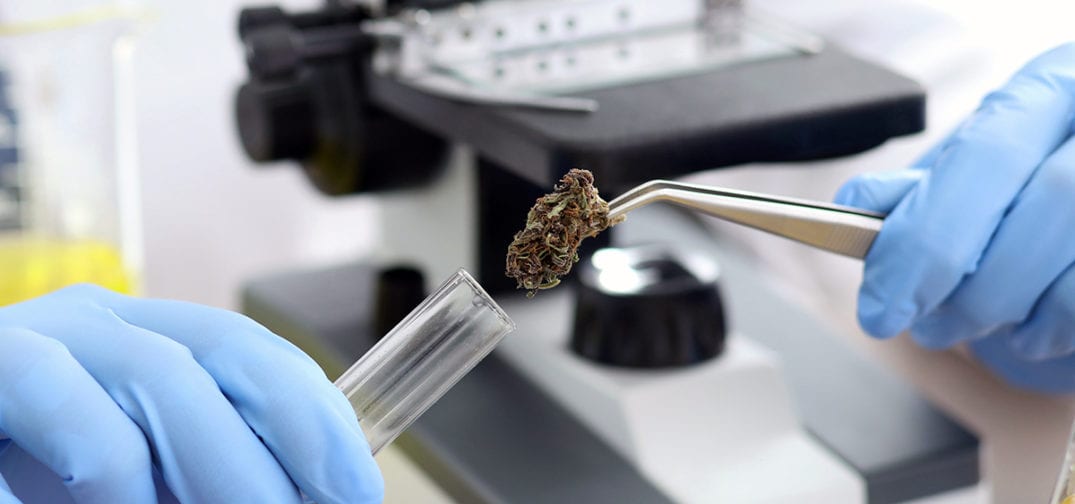They are physicians, researchers, scientists, senators, professors, directors, vice presidents, deans, cultivators, entrepreneurs, and business owners from Nebraska — their backgrounds and training are varied. They are six inspired and mission-driven women who are leading the way and pushing the innovative frontiers of cannabis-related industry and education, not only in Nebraska but worldwide. Coincidentally, they also all have first names that start with the letter A!
Let’s take a closer look at the careers of these half-dozen cannabis entrepreneurs, educators, and innovators that are helping pioneer the Nebraska cannabis industry.
Dr. Andrea Holmes, Professor of Chemistry and the Director of Cannabis Studies at Doane University, is one of the co-founders and the Chief Growth Officer of Precision Plant Molecules (PPM) in Denver Colorado. PPM is a premier hemp extraction company that is focused on minor cannabinoids that are now being rapidly embraced by CBD companies in the emerging cannabis health-related market. Dr. Holmes is a national and international expert in cannabis chemistry, testing, processing, and in the cannabis industry in general. She has given local, national and international lectures, and appeared on radio and television broadcasts, podcasts, and webinars on these subjects. She has published articles on cannabis education, terpenes, the endocannabinoid system, major and minor cannabinoids, extraction methods, niche markets (including using CBD for the pet industry), personalized and bespoke cannabis-based applications, and other unique topics involving the rapidly emerging cannabis industry. In collaboration with Dr. Amanda McKinney, Dr. Holmes has developed and signed worldwide contracts with hemp companies interested in merging cannabis-related science with medicine.
Andrea has had an extremely distinguished overall career as an organic chemist. Besides her two positions at Doane, she holds courtesy associate professor appointments at the University of Nebraska-Lincoln (UNL) and the University of Nebraska Medical Center (UNMC). Her pre-cannabis work with a variety of multi-application chemical detection methods won her millions of dollars in grants, contracts from (amongst other organizations) the United States Department of Defense (specifically the United States Army), and prestigious awards and recognitions from the Nebraska American Chemical Society, the National Institutes of Health, and the National Science Foundation.
Dr. Amanda McKinney is the Associate Dean of the School of Integrative Learning and the Division of Health Sciences at Doane University. Amanda is a triple board-certified physician in Obstetrics and Gynecology, Female Pelvic Medicine and Reconstructive Surgery, and Lifestyle Medicine. She also holds certifications in Herbal and Cannabis Medicine. Amanda teaches courses and gives lectures on medicinal cannabis as well as on Lifestyle Medicine– which concentrates, in large part, on promoting plant-based diets for prevention and reversal of the chronic disease. She was one of the main developers of Doane University’s online Prerequisites for the Health Professions (PHP) program that was the foundation of the university’s current keystone multi-million dollar OLA (Open Learning Academy) programs.
Amanda also founded and is the Executive Director of the innovative and highly interdisciplinary Institute for Human and Planetary Health (IHPH). IHPH’s research and educational mission is very broad and ranges from sustainable agribusiness planning and practices to Lifestyle Medicine certifications. IHPH also studies existential threats to humanity and our planet from disease, global warming, and other sources (ranging from historical to modern times). But the central confluence of the Institute’s mission is to present the evidence that the dietary pattern that best preserves both human and planetary health (particularly in relation to chronic disease, climate change, and resource depletion) is based on minimally-processed whole plant foods grown using sustainable and restorative agricultural practices. Amanda also co-owns the company A&A Apothecary where she and Dr. Andrea Holmes currently utilize their expertise in medicine and chemistry to create herbal and cannabis-based products that promote health and wellness. The company also provides sound, evidence-based lifestyle, and health information on which individuals can base their personal health and wellness decisions.
Dr. Arin Sutlief, Director of Cannabis Testing Laboratories (CTL), is an expert in cannabis testing methods. Arin built the testing laboratory for cannabinoid analysis and pushed the first hemp-testing lab in Nebraska through the rigorous ISO certification process in a short period of time with the help of a consultant, Kimberly Ross, and colleague and newly appointed quality manager Jennifer Lytle. Arin is also the course builder and teaching professor of the new online course Cannabis Testing & Instrumentation In Doane’s School of Integrated Learning (SIL). She is a public speaker traveling throughout Nebraska to help with cannabis education, understanding applicable laws and regulations, and cannabinoid analysis. Together with her colleagues, her research and peer-reviewed publications work towards advancing testing methods and the cannabis industry more broadly.
Andrea Butler is Associate Vice President of Academic Affairs (Online Operations) and Dean of the School of Integrated Learning. Andrea has a proven track record of success with program development and explosive enrollment growth. Andrea is spearheading Doane’s advancement in digital learning and has achieved stellar results as the guiding force behind online programs such as Doane University’s multi-million dollar and highly regarded Open Learning Academy (OLA). With programs such as DoaneX and the Cannabis Studies program, Andrea is continuing to create a digital learning ecosystem that is culturally responsive and equity-based.
Andrea, in a relatively short time and in response to the growing need in Nebraska, has successfully established and implemented a cannabis curricular architecture (in partnership with Dr. Andrea Holmes) for multi-modality, credit, and non-credit bearing cannabis courses, certificates, future minors, and degrees. Through the university’s School of Integrative Learning (SIL) Doane is creating partnerships to address the needs of learners across Nebraska, throughout the nation, and around the world, interested in understanding more about cannabis and hemp.
Senator Anna Wishart, is one of the leaders, in the Nebraska Unicameral, of the movement for the legalization of medical marijuana in Nebraska. She is also co-chair of the organization Nebraskans for Medical Marijuana. It submitted over 180K signatures in July to get the issue of medical marijuana on the state’s ballot. Anna has always attested that medical marijuana legalization is critical for many sick Nebraskans. She believes that along with child welfare and other important issues that she passionately believes in and works on, medical marijuana “just makes sense.” She has collected thousands of signatures, recruited hundreds of volunteers, and solicited millions of dollars in funding to run a campaign to put medical marijuana on the ballot for Nebraskans to vote on in November. The Senator states that “What we’ve seen with polling is resoundingly over 70 percent of Nebraskans across the state, across demographics, across age groups, rural and urban, support legalizing access to medical marijuana.”
Annette Wiles is the owner of Midwest Hop Producers. She was one of 10 growers in 2019 who were randomly selected by the Nebraska Department Of Agriculture to participate in the first year of the state’s Hemp Cultivation/Processing Research Program. Annette and her husband had been growing corn, beans, and hops, but there’s not a lot of money in those crops currently. That’s why they looked into alternative, specialty crops, such as hemp.
Federally-funded research in collaboration with UNL allowed Annette to conduct experiments on the family’s farm. These have included trials on the optimal spacing of plants, pruning techniques, ideal lighting and temperature conditions, and cannabinoid profiling during the growing cycle. Annette is spearheading educational efforts in cannabis, collaborating with universities, and was an instrumental partner in achieving enough signatures for the Nebraska for Medical Marijuana Initiative to qualify for this Fall’s ballot in the state.
These female cannabis pioneers haven’t built these foundations in the state alone but have received help, support, and guidance from a number of colleagues. President Jacque Carter at Doane University has been instrumental in creating the School of Integrative Learning, where many innovations like Cannabis Studies were created and where faculty and staff get encouraged to think outside the box to be relevant and modern. President Carter is also the main reason why Cannabis Testing Laboratories was created, an unprecedented move for a small, private, and rural University like Doane University. Julie Schmidt, Vice-President of Finance and Administration at Doane University and Dr. Allan Jenkins, former Professor of Economics at the University Of Nebraska-Kearney (UNK) also played key roles in the establishment of Doane’s CTL.
These half-dozen “As” have all been drawn to this emerging, if still stigmatized, field by their willingness to take risks and their strong shared belief in the multifaceted usefulness and beneficial versatility of the cannabis plant. They are succeeding in a seemingly unlikely socially-conservative Red State environment — in part due to their ability to work collaboratively and build bridges. Mutually, they have also seen and seized opportunities to apply science, as well as brought professionalism, rationality, and understanding to a still mysterious, controversial, and confusing subject. The newness/rebirth of cannabis in this exciting era of legalization has created opportunities for scientific discovery, pioneering education, further legalization, commercial success, and for the promotion and dissemination of broader social and health benefits from cannabis. These women have just started to scratch the surface of what is possible for the cannabis movement in Nebraska. Their skills and energy are great examples of what this emerging industry and educational field needs!



